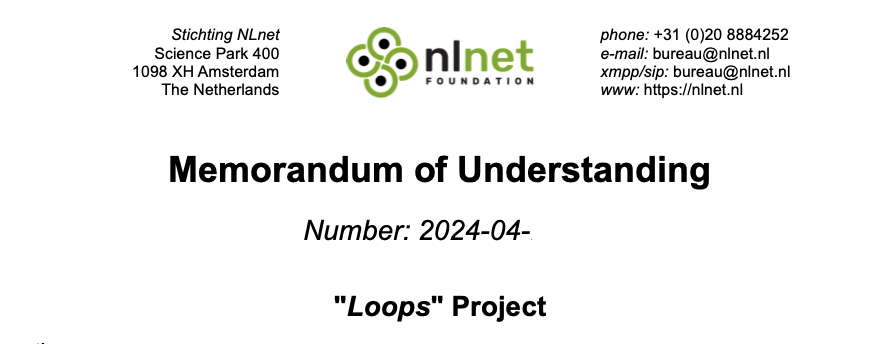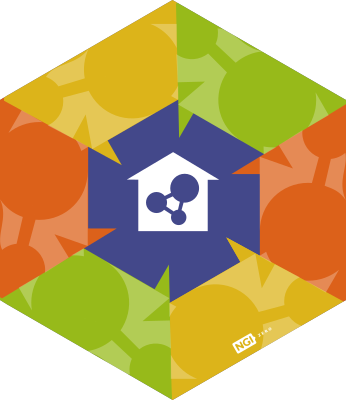Fediverse Report – #133
The News
The main subject of discourse and conversation on the open social web this week has been regarding a statement published in the repository of the Social Web Community Incubator Group. The open letter says: “This statement is a call for cooling the temperature of discussions and a reminder to be respectful of each other and the huge amount of work everyone is putting in to build a better open social web. We do not win by tearing each other down, which only emboldens and empowers those who do not want either protocol to succeed.” Tomorrow I’ll put out a separate article with my thoughts on the discourse, and how I’m thinking about decentralisation, collaboration and building a resilient open social web.
The government of Nepal has blocked the majority of social media sites in the country over the weekend, including Mastodon. Nepal’s government required all social media sites to register with the government, with a deadline of September 3rd. This included the biggest sites like Instagram, YouTube and X, but also smaller platforms such as Mastodon. Most sites did not comply, and as a result blocked access to the sites. This move caused massive protests in the country, with at least 19 people killed by the police. The government has lifted the social media ban today after the mass protests. That the government banned Mastodon affected at least the mastodon.social server. It looks to me like this was the only server that was affected by the ban, but I’ve not been able to confirm this. Any additional information would be appreciated. The move by the Nepalese government indicates that governments are willing to put pressures on decentralised social networks as well to force legal compliance. While decentralisation can counteract this to some extend, it also indicates that governments are able to cause significant disruption to the usage of decentralised network in their country. That the impact in this case was only (likely) limited to the mastodon.social server is more of an indication of the heavy-handed and unsophisticated approach of the Nepalese government to the entire situation. DNS blockages on, lets say, the top 1000 fediverse servers would have disrupted fediverse usage in Nepal to a significant extend, and a government that is willing to DNS block popular platforms like Facebook and YouTube should not be assumed to have a lot of qualms about DNS blockages of a thousand small fediverse servers either.
Governments are starting to more actively interfere with the social internet, and TechCrunch has a closer look at the expanding age verification laws. It mainly focuses on the US, as well as UK’s Online Safety Act, but other countries like Brazil are also working towards such laws. This already has impact on a popular Bluesky client, and has impact for fediverse servers in Brazil as well. TechCrunch’s Sarah Perez also wrote about how the Mastodon organisation is handling this changing environment, and the Mastodon organisation said in the statement that ” while Mastodon’s own servers specify a minimum age of 16 to sign up for its services, it does not “have the means to apply age verification” to its services.”
A.gup.pe was a system that added groups functionality to the microblogging side of the fediverse. The a.gup.pe domain got sold to a new ownership, and the new owner used the domain for an SEO spam website. This disabled the group functionality, and suddenly made this system people were still using for groups unusable. This was possible due to the .pe domain registrar allowing the sale of the domain before a domain registration expires. The organisation behind a.gup.pe had formally ceased operation in the fall of last year, but the system was still operational and actively in use by people. The group system such as a.gup.pe functioned by having people subscribe to an account related to a certain topic. Other people could then tag this account in their posts, and these posts would get send out to everyone who followed the group account. This functioned as an upgraded version of following a hashtag; if you follow a hashtag you won’t see posts made on other servers if nobody on your server follows that account, which is a major issue for accounts on small fediverse servers. Other platforms like Friendica offer improved versions of such group functionality with additional moderation features, but the a.gup.pe system still saw usage due to inertia and network effects.
Short-form video platform Loops now has the full source code available, as part of the first alpha 1.0 release. Creator Daniel Supernault has advertised the platform as open source for a while now, but while there was a code base available, it was missing core features that prevented other people from running their own Loops server. While Loops uses ActivityPub, federation has not yet been enabled.
FediForum will hold a book tour event for Robert W. Gehl’s new book about the fediverse, ‘Move Slowly and Build Bridges’. In the book, Gehl “tells the story of activists, software developers, artists, and everyday people who have built the fediverse”. The event will be on Thursday, September 11, 2025, 10:00am-11:00am Pacific Time (19:00-20:00 CEST). Attendance is free, and can be registered here.
A New Social, the organisation behind the Bridgy Fed software which connects various protocols on the open social web, shares more information about their funding situation. The organisation has been self-funded so far, with CTO Ryan Barrett fronting the cost of running Bridgy Fed, which amounts to 2000USD per month. The organisation has introduced a small tier Patreon subscription in order to entire regular Bridgy Fed users (which is used by over 110k accounts) to pay for their usage. A New Social notes how “Bridgy Fed was slowly becoming load-bearing infrastructure for the open social web”, and this is why the organisation is working to create sustainable forms of governance for the infrastructure. WeDistribute also has a podcast episode out this week where they talk with the people from A New Social, Anuj Ahooja and Ryan Barrett, about the organisation, their new tool Bounce, and the open social web more broadly.
The European Data Protection Supervisor (EDPS) is back on Mastodon after a long hiatus. The EDPS was the main driving organisation behind the EU Voice project, where between 2022 and 2024 it ran a Mastodon server for some 40 EU organisations. This project came to an end after the EDPS could not find an organisation within the EU that would want to take up ownership responsibilities for the project. This lead to a shutdown of the server and project, although the most popular account, that of the European Commission, continued their presence with their own Mastodon server. Now the EDPS can finally put their talking points of data privacy and sovereignty in practice again, by having a social media presence they have ownership of.
IFTAS is holding their annual Moderator Needs Assessment, a survey among moderators, admins and community organisers for the fediverse to better understand their needs and priorities. These surveys give a great insight in what moderation and trust&safety on a decentralised open network actually entails, and what some of the main issues are that moderators experience. For some additional insight in these surveys, the report of last years assessment finds that the fediverse has roughly one moderator for every 1200 active accounts, and that only 16% of communities have 24-hour moderator coverage.
A fun interview with the operator of the misskey.id fediverse server, one of the only public Indonesian fediverse servers. The fediverse has an active user base in Asia, mainly in Japan with people using Misskey. There is however little interaction between the Western user base of the fediverse and the Asian community, due to language barriers. This conversation with the Indonesian community provides a good insight in how communities around the world are building their own places on the fediverse.
The Links
This week’s fediverse software updates.
This week’s edition of WeDistribute’s new newsletter with a round-up overview of events in the open social web.
A goodbye to Kbin.
The Threadiverse app Photon now supports PieFed.
pl-fe is a new web client that supports an variety of fediverse platforms, including Mastodon, Akkoma, GoToSocial, Hollo, IceShrimp and more.
https://connectedplaces.online/reports/fediverse-report-133/







